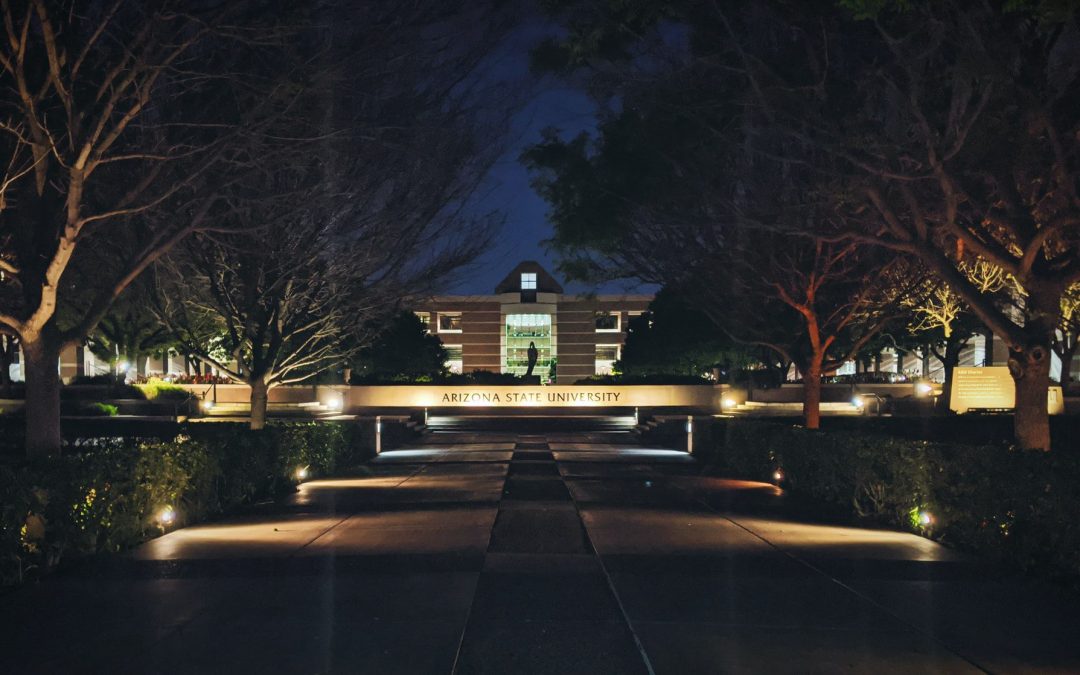Not only does Arizona State University (ASU) offer deep educational resources in the blockchain field, it is host to a variety of blockchain-focused groups and collaborations between faculty members and students alike.
table {
border-collapse: collapse;
width: 100%;
}
tr{
border: 1pt solid black;
}
td{
padding:5px;
font-size: 24px;
text-align: center;
}
tr td:nth-child(1){
background-color: #262626;
color: #fff;
}
tr td:nth-child(3){
font-size: 18px;
width: 20%;
}
tr td:nth-child(4){
font-size: 18px;
width: 20%;
}
tr td:nth-child(5){
font-size: 18px;
width: 20%;
}
.circle{
background-color:#F8BF1E;
display:block;
height:50px;
width:50px;
border-radius:50%;
border:1px solid #000;
margin:auto;
color: #fff;
line-height:50px;
text-align:center;
font-size: 18px;
}
.green{
font-size: 18px;
color: #00D964;
}
.red{
font-size: 18px;
color: #FF0000;
}
.white{
font-size: 18px;
}
| 30 New | Arizona State University | Total Score 51.9 | Regional Rank 8 | Courses 4 |
Blockchain-relevant courses available to students include “Applied Cryptography,” “Distributed Software Development” and “Data Processing at Scale.”
ASU allows students studying postgraduate computer science to focus directly on blockchain engineering, which it identifies as “one of the fastest-growing and highest-paid software specializations.” It aims to give students hands-on experience in building blockchains, not just an overview of existing blockchain applications.
Read More: The Top Universities for Blockchain by CoinDesk 2021
The ASU Blockchain Research Lab pushes blockchain research forward while partnering with industry counterparts in developing actual blockchain applications.
The lab won the Community Choice Award at the NuCypher + CoinList Spring Hackathon in 2019. Its research projects include developing distributed ledger technology for peer-to-peer microlending and for peer-to-peer energy trading, among others.
The lab’s external work is intentionally allowed to influence what postgraduates study in classes in order to ensure the education they are receiving is as relevant and up to date as possible.
The student-run Blockchain Innovation Society opens its doors to interested participants from any discipline at the university and from beyond the institution’s walls, too. It organizes weekly meetings, including appearances from guest speakers and discussion groups.
On top of that, the Blockchain, Fintech & Cryptography Club arranges events aimed at educating students about the computer science behind blockchain. The club partners with the Blockchain Research Lab for the sake of participating in research and development.














